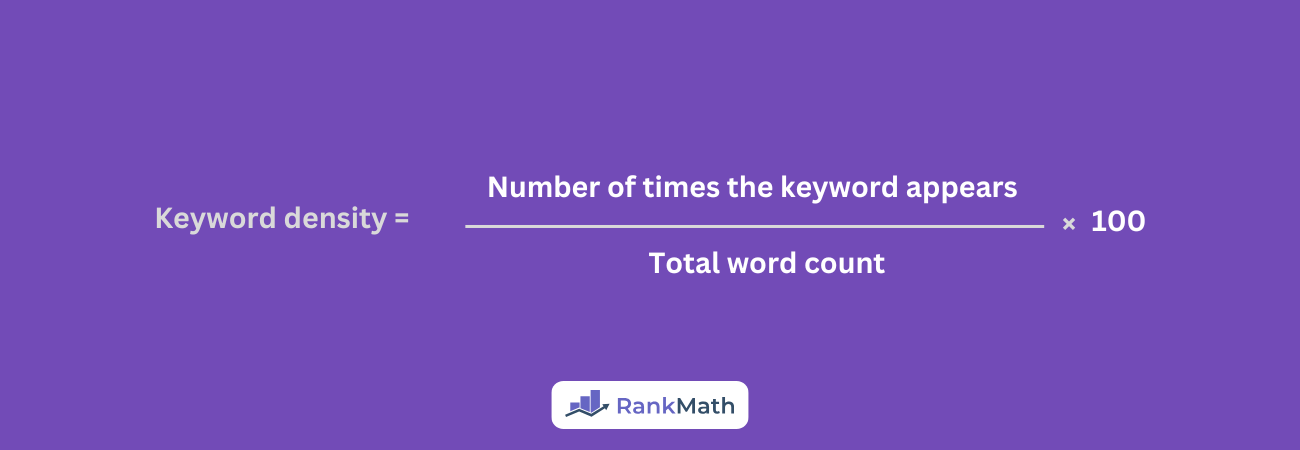What is Keyword Density?
Keyword density is the percentage of times a keyword appears in a piece of content compared to the total word count. It is calculated by dividing the number of times the keyword appears by the total word count and multiplying by 100.

For example, if a keyword appears 20 times in a 1000-word article, the keyword density of that keyword will be 2%.
In the early days of search engines, keyword density was a crucial metric for determining the relevance of a keyword to the content in which it appeared. This idea was based on the premise that keywords related to the content should occur more frequently than those unrelated to the content.
However, keyword density is no longer relevant, as search engines now utilize sophisticated algorithms and systems, such as BERT, to determine the relationship between keywords and the content in which they appear.
In this article, we’ll cover:
Importance of Keyword Density to SEO
Keyword density is not a crucial factor in SEO. Google has confirmed that it is not a ranking factor and does not affect a site’s ranking. Google also clarified that there is no ideal keyword density for content looking to rank on its search results pages.
Google added that keyword density varies depending on the length and type of content. While keywords will help Google understand a piece of content, excessively repeating them does not affect ranking. In fact, attempting to achieve an ideal keyword density can lead to keyword stuffing, which may result in penalties.
Keyword stuffing is the act of adding unnecessary keywords to your content. It violates De richtlijnen van Google, is considered a black hat SEO technique, and can result in Google demoting or removing your rankings from search results pages.
Despite Google’s repeated statements about the irrelevance of keyword density to ranking, many SEOs and bloggers insist that it is a ranking factor and continue to optimize their content to achieve the perfect keyword density.
Why Bloggers Think Keyword Density is a Ranking Factor
Keyword density was somewhat significant back when Google relied on keywords to understand the content published on a webpage. Back then, bloggers focused on repeating their keywords as often as possible to achieve the perfect keyword density.
This allowed them to rank on Google as long as they added enough keywords. However, Google and other search engines have improved since then and can match search queries to relevant content without relying solely on the frequency of the keyword’s appearance in the content. Therefore, keyword density is no longer relevant.
What to Do Instead of Optimizing for Keyword Density
Instead of bothering yourself with achieving the perfect keyword density, you should consider keyword clustering. This refers to the practice of optimizing your content for multiple keywords with similar search intent.
Keyword clustering works because Google is less interested in matching keywords with search queries and more interested in satisfying the searcher’s search intent. That way, a single piece of content can rank for hundreds or even thousands of keywords, increasing your chances of receiving organic traffic from search results pages.